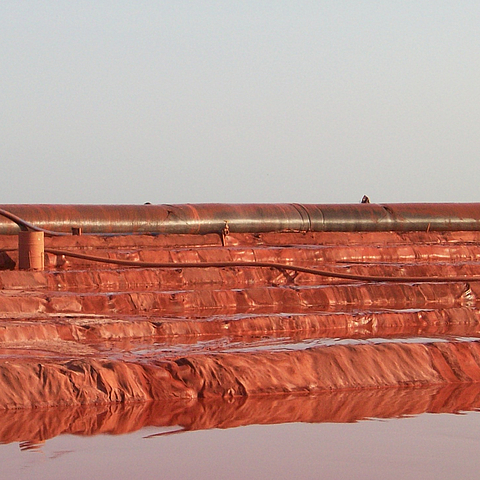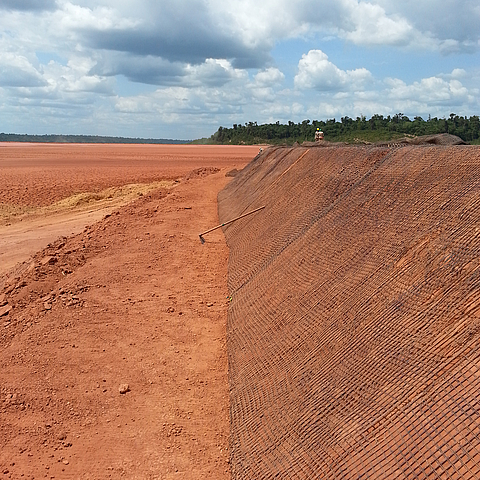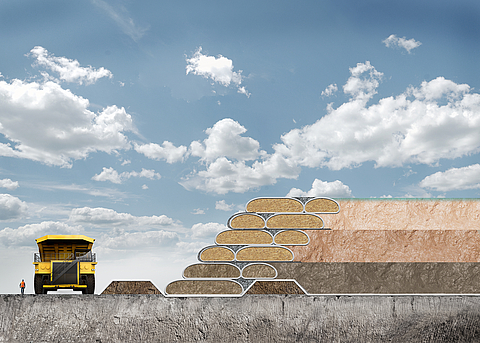Tailings Dam Embankment Construction
Challenge
Due to the environmental requirements related to the disposal of tailings, tailings dams are required to be lined with geomembranes. Tailings dam footprints organically increase over the life of mine and so do the associated environmental risks and impacts. The construction and preparation of tailings dams is both costly and time consuming.
SoilTain® dewatering technology in conjunction with our reinforcement solutions, helps to reduce the required footprint areas of tailings dams which leads to lower required capital investment. Embankment and dyke construction with SoilTain dewatering tubes allow the incremental raising of tailings dams with a positive contribution to the environmental and economic sustainability of mining operations.
Advantages
- Tailings dam footprint reduction
- Stable embankment construction on geomembrane lined facilities
- Embankments can be incrementally raised to keep up with the safe rate of rise
- Utilisation of tailings/waste fill for embankment construction
- Improves tailings mechanical characteristics through encapsulation and confinement
- Reduced carbon footprint

Challenge
When tailings dams reach their capacity the common solution is to build a new tailings storage facility. This creates new environmental risks, increases capital outlay and new land requirements.

Our sustainable waste storage solutions provide greater utilisation of current waste disposal space through increasing vertical storage capacity of existing tailings dams using SoilTain® tubes, Fortrac® geogrid reinforcement and Tektoseal® Clay barriers.
Advantages
- Better utilisation of waste material to construct stable embankments
- Efficient use of existing tailings dam footprint
- Reduction of environmental risk
- Reduction of capital and operational expenditure
- Increase of operational sustainability






